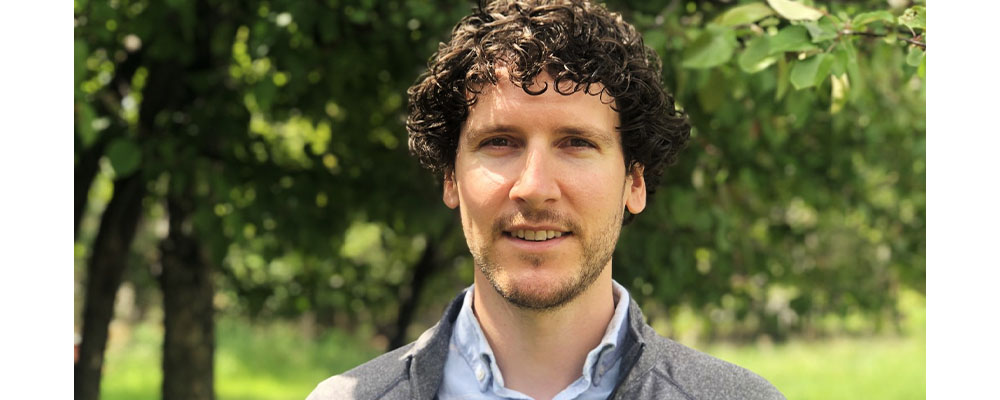
Congratulations to Chris England, our M.A. Outstanding Thesis Award recipient!
QUESTION AND ANSWER WITH SESSION WITH CHRIS
What does receiving this award mean to you?
I’m honored to receive this award. To date, writing my thesis has been the single most difficult task of my academic career. It feels great to be acknowledged formally for the countless hours of reading, thinking and revising that this thesis demanded.
What has your experience been like with the Okanagan School of Education?
I’m glad that I chose to study with the Okanagan School of Education. I was allowed the academic freedom to pursue the questions that were meaningful to me. The quality of the courses I took during my program were top notch. I appreciated the timely and helpful guidance to meet all of my course requirement. I cannot give my supervisor, Dr. Christopher Martin, enough praise; he was knowledgeable, helpful, available and made my education feel like a priority.
What is your research project?
My thesis takes a close look at our efforts to use education as a tool to reduce individual disadvantages. Disadvantage is a position where people have fewer opportunities, less access to developing certain skills and less independence compared to others. When we try to make our society better for everyone (also known as social justice), these pursuits can lead to disagreements and conflicts. Some people propose that we could resolve the problems of disadvantage if people were simply more equal. I strongly disagree. After careful consideration, I argue that it is a mistake to think of education as promoting social equality. I argue that equality is only valuable because it sometimes improves individual freedom. I argue that in societies like ours, to pursue social justice ethically, we should abandon ideas of improving social equality. Instead, I argue that people in our society deserve opportunities to live autonomous lives.
Why did you choose this topic—and what difference do you hope your research will make?
From the outset of my teaching career in 2014, I was perplexed by the aims of social justice in education. Despite all the training and information on the topics, there seemed to be a lot of confusion and resistance around the implementation of diversity, equity and inclusion initiatives. While all of the initiatives seemed to be promoting desirable social changes, some of the aims seemed to be conflicting. It became clear to me, from educational controversies in the media, in staff rooms and staff meetings, as well as in the classroom, that I was not the only one that was puzzled. The controversies around social justice in schools were wasting a lot of time, effort and emotion on disagreements about pursuing social justice through education. Without clearly established aims for promoting social justice, these efforts will remain a major source of political and educational controversy. I hope that my research will help to clear up some of the misunderstandings on topics of social justice in education, providing aims to be used as guidelines for the ethical implementation of stronger movements towards social justice.
What advice do you have for future graduate students?
Graduate studies for a MA are difficult. Make sure you can commit a significant chunk of time to your studies for two to three years. You need to learn a lot about your area of interest before you can engage in it. Pick courses that will contribute, as much as possible, to your knowledge of your area of interest. Read everything. Get your hands on reading lists from courses that do not fit your timetable. Explore everything in the library on related topics. Take notes! Pull out and organize the ideas that are valuable. Find people you can talk to about what you read: this could be other students, colleagues, friends or family. Pose questions. Write and revise your ideas. Communicate often with your supervisor. It is a lot of work, but it is worth it. Pursuing your legitimate curiosity will make your studies meaningful.
We’re also pleased to share that Chris successfully defended his thesis on May 3.
Graduate Supervisor: Dr. Christopher Martin